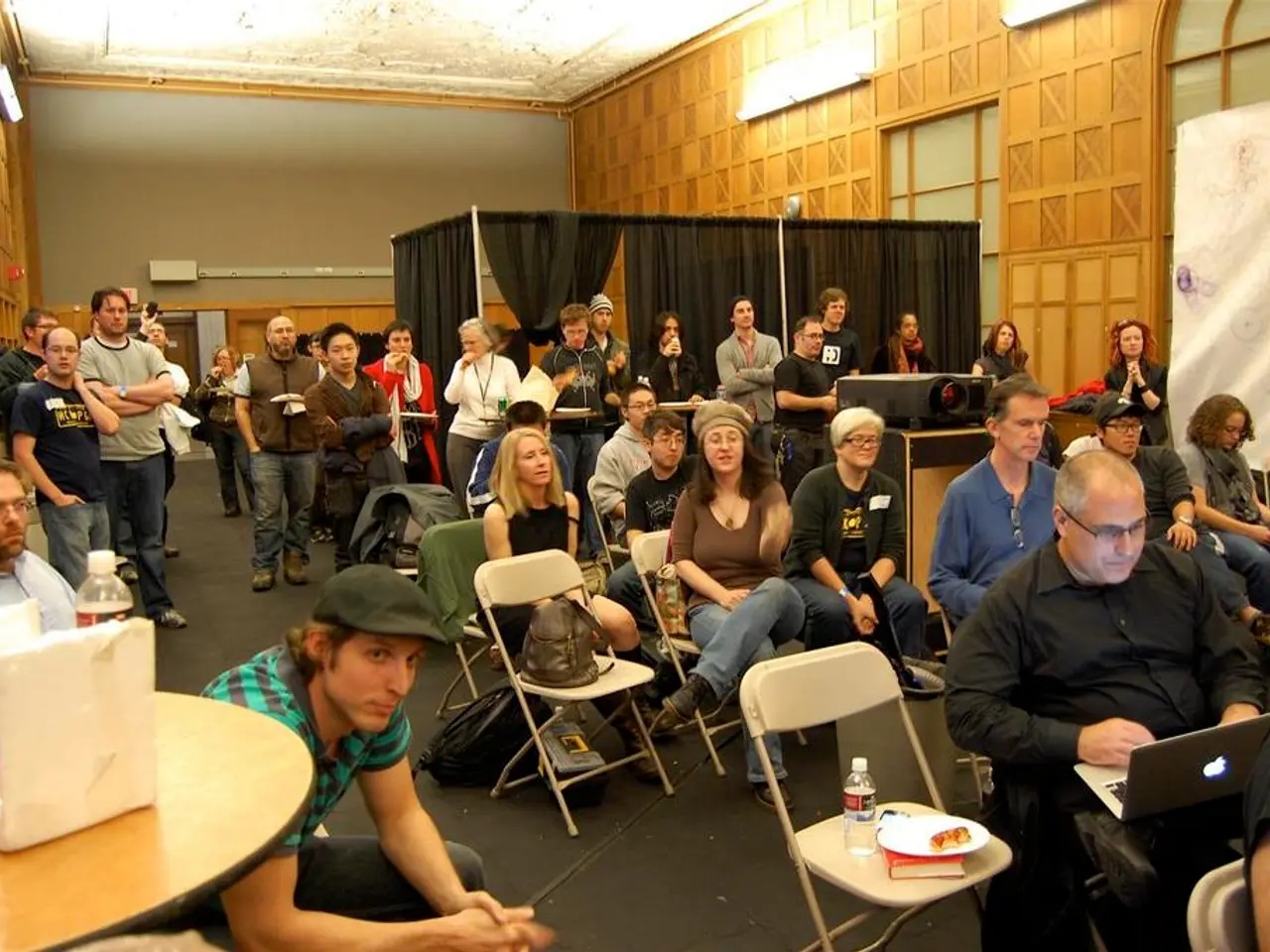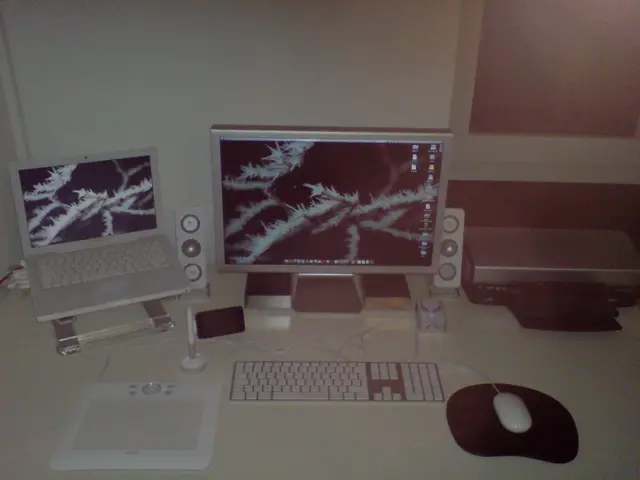Internet Personality Felix Kjellberg, also known as PewDiePie, is fully immersing himself in the process of 'deGoogle-ing' and finds the Steam Deck as an unexpected resource aiding him in breaking free.
In a recent move towards digital autonomy, popular YouTuber Felix Kjellberg, better known as PewDiePie, has publicly announced his mission to "de-Google" his digital life[1][2][3]. This comprehensive approach involves both software and hardware changes across multiple devices, showcasing the possibilities of de-Googling.
**Embracing Privacy-Focused Alternatives**
Kjellberg has swapped Google Search with DuckDuckGo, praising its functionality and user-friendly interface[3]. He has also switched from Chrome to Firefox, a browser he describes as "B-tier" yet highly customisable for privacy, with Brave considered but Firefox preferred for its open-source nature[3].
Email communication has moved away from Gmail, with Kjellberg opting to self-host his own email server, eliminating dependency on Google’s infrastructure[1][3].
**Self-Hosting Core Services**
Kjellberg's de-Googling setup includes the use of a Raspberry Pi 5 and Steam Deck as part of his self-hosted stack[1][3]. He uses Vaultwarden, an open-source alternative to password managers like LastPass or Bitwarden, for password management[1][3].
For note-taking, Kjellberg employs Joplin, hosted on his Steam Deck, serving as a server for personal data[1][3]. He has also replaced Google Drive with FileBrowser, a self-hosted file management solution[1][3]. Productivity needs are met by Nextcloud, an all-in-one suite for productivity, cloud storage, and calendar management[1].
**Enhanced Security and Privacy Measures**
Kjellberg uses a custom domain for his self-hosted services to maintain control and branding[1]. He employs Tailscale VPN for secure remote access to his private network[1]. For extra security, he implements a Zero Trust configuration and uses Fail2Ban for intrusion prevention[1].
To regain control over his software and devices, Kjellberg has installed GrapheneOS, a privacy-focused operating system, on his Google Pixel[2][3]. This custom OS provides granular control over app permissions, including whether apps can access the internet or specific files[2][3]. When installing apps, GrapheneOS prompts the user to allow or deny internet access, giving users direct control over data flow[3].
**The Steam Deck as a Privacy Tool**
The Steam Deck, primarily a gaming device, has been repurposed in Kjellberg’s setup as a server for various self-hosted services, including note-taking (Joplin) and file management[1][3]. This allows him to keep sensitive data in-house and under his own control, rather than relying on cloud services from major tech companies.
**A Message of Empowerment**
Kjellberg emphasises that de-Googling is not just about privacy, but also about regaining control over personal data and software. He encourages viewers to consider open-source alternatives and self-hosting as viable options, even if it requires learning new skills[1][2][3].
**Summary**
PewDiePie’s de-Googling setup demonstrates a multi-layered approach to digital privacy and autonomy, leveraging both custom operating systems and self-hosting to minimise reliance on major tech corporations[1][2][3]. This table provides a summary of his changes:
| Aspect | Old (Google) | New (PewDiePie’s Setup) | |-----------------------|----------------------|------------------------------------| | Search Engine | Google Search | DuckDuckGo | | Browser | Chrome | Firefox | | Email | Gmail | Self-hosted email server | | Cloud Storage | Google Drive | FileBrowser (self-hosted) | | Notes | Google Keep | Joplin (self-hosted) | | Password Manager | Google Password Manager | Vaultwarden (self-hosted) | | Productivity Suite | Google Workspace | Nextcloud (self-hosted) | | Phone OS | Stock Android | GrapheneOS (custom, privacy OS) | | Security | Google Security | Tailscale VPN, Fail2Ban, Zero Trust| | Server Hardware | - | Raspberry Pi 5 + Steam Deck |
[1] PewDiePie's De-Googling Journey: https://www.youtube.com/watch?v=ZKGfXv4QE5c [2] PewDiePie's Custom OS on Android: https://www.youtube.com/watch?v=r80Ul8ZJZDk&t=52s [3] PewDiePie's De-Googling Setup: https://www.youtube.com/watch?v=yuM75-A83aE
- PewDiePie, in his quest for digital autonomy, has swapped his betting on Google's password manager for the privacy-focused, self-hosted Vaultwarden.
- The popular YouTuber, in his self-hosted setup, utilizes Gadgets like the Raspberry Pi 5 and Steam Deck as part of his core technology for note-taking and file management.
- Rather than relying on Google's calendars and productivity suite, PewDiePie has integrated technology such as Nextcloud to manage his productivity, cloud storage, and calendar management needs.







